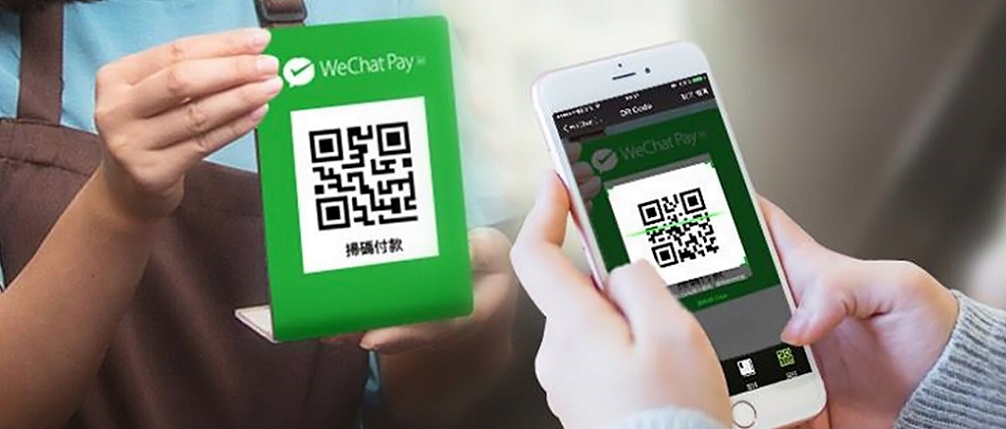
WeChat Pay has announced a change to its 600 million users. It will now be giving them a credit rating – called „payment points”. These will be calculated by an artificial intelligence system based on consumers’ personal and credit records, plus habits and other factors said to represent users „credibility.”, according to the ATF Daily
This system will also be applied to people who play online games. Tencent will give users a „trust” value. A high „payment points” score indicates „deep understanding” of users, and Tencent will nominate users as „trustworthy”, or not.
According to company data around 300 million people use Alibaba’s Alipay and 600 million use Tencent’s WeChat Pay. Both systems rely on paying via QR codes on your mobile phone. WeChat is similar to WhatsApp, and Alipay is an offshoot of Alibaba’s Taobao.com, which is similar to eBay and Paypal.
WeChat believes its „payment points” will be Tencent’s personal information credit system, performing a similar function to personal credit rating systems such as Equifax. So small commercial institutions, including banks, will choose use the credit report for personal credit evaluation, Tencent hopes.
In China the personal credit rating system relies on credit reports available to large and small institutions, which are basically only Alipay’s „ant” credit scores, or the national background check by the People’s Bank of China.
The process to obtain credit reports is complicated, and each inspection leaves marks on individual’s credit report.
Investigators
Currently, business background credit reports are particularly important, and very few companies offer a competent service in this regard. So, businesses often have to use private investigators who have special licenses to check people’s bank accounts.
Officially, China does not check individual bank accounts for tax purposes, unless there is suspicion of wrongdoing. The main logic behind this is to stop a run on the banks and this has been in practice since China first started to invigorate its banking scheme, as most individuals kept cash at home.
Personal credit reports are inseparable from daily consumerism, and personal credit will become increasingly important in the future in China, according to an analysis by Lei Technology. It said only by launching a unified credit report that can be used commercially will it be possible to have a place in the future credit system. This is also the reason why WeChat payment has few functions but is of great significance. But Lei Technology says the WeChat system is not perfect.
Hidden dangers
The introduction of ‘payment points’ also brings some hidden dangers. For example, in terms of personal privacy and property security, some people are skeptical about WeChat payment points. Using payment points means that Tencent can access users personal real-name information and detailed payment information.
Big data is a double-edged sword, and there are advantages and disadvantages. While consumer records can endorse personal credit, the numbers must be impressive to get credit without a deposit. In order to avoid deposits, it is appropriate to submit user consumer records and consumer habits to commercial organizations for analysis.
Though this common in western countries, Lei Technology says there is no unified conclusion from the outside world on this issue. On security, unlike Alipay, WeChat itself is an instant messaging tool, so WeChat faces the risk of being hacked.
Alipay has more functions, and is not a chat platform, so as long as a user is not involved in illegal activities such as money laundering, accounts will generally not be banned or suspended.
Accounts restricted due to subversive comments
However, WeChat accounts are different. Accounts are more likely to be restricted due to more “complex attributes” such as political statements. Even being in a group chat that has subversive comments could lead to a user’s account being suspended.
According to a report by Lili Technology “certain penalties will be taken for users who breach the contract. If the user breaches the contract, the system will label the user directly on their credit score, affecting data and commercial value.”
So people will have to play close attention to the user agreement. A large number of censors and internet police monitor WeChat content. The Lili report suggests Alipay is more savvy in the e-commerce sector and has avoided this potential risk.
Face-scanning
WeChat Pay hopes to take advantage of its face-scanning, scanning codes and deposit-free services to achieve quick self-service, and surpass the more business-oriented Alipay. WeChat Pay’s penetration of shopping malls, campuses, hospitals, restaurants, childcare, beauty services and other areas is progressing rapidly. But some hotel chains are opting out, and have created their own apps, presumably to protect visitor privacy.
As the sector progresses, it appears that WeChat and Alipay will be the main contenders for consumer credit. What functionality or impact the digital yuan will have will strongly depend on whether the PBoC – the central bank – sees a personal credit rating as a business opportunity to exploit.
Banking 4.0 – „how was the experience for you”
„To be honest I think that Sinaia, your conference, is much better then Davos.”
Many more interesting quotes in the video below: